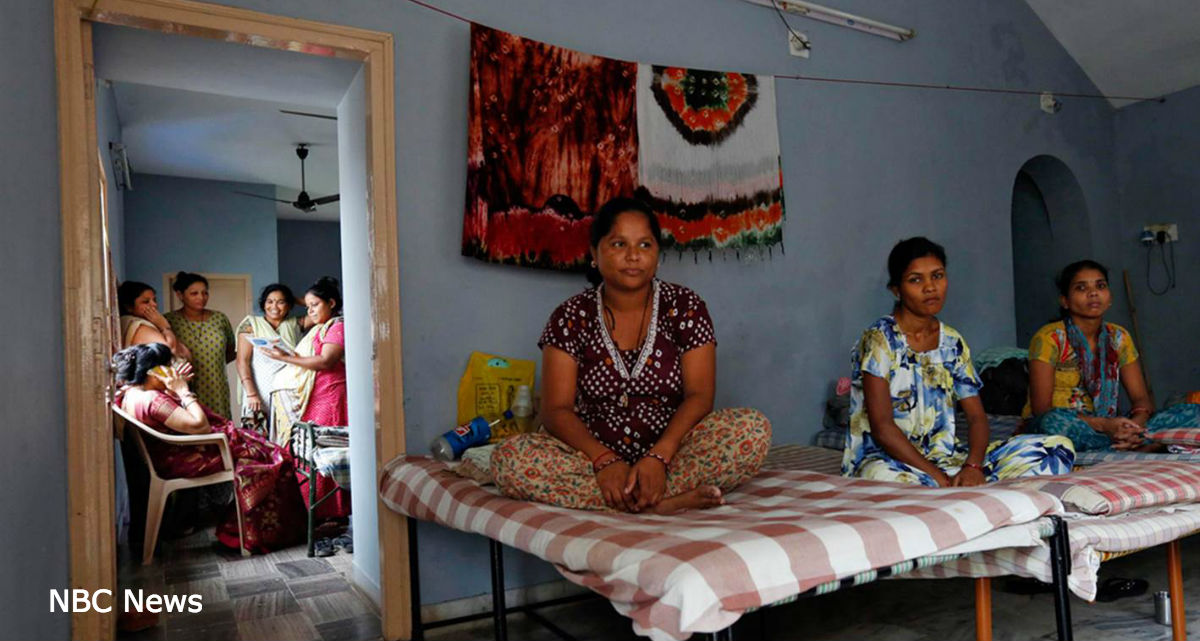
Remarkable insights in Norwegian study of India’s surrogate mothers
Anthropologist conducted interviews with commissioning parents and surrogate mothers
Norwegian anthropologist Kristin Engh Førde has just completed a PhD on international commercial surrogacy in India, which gives some of the most remarkable insights available into this controversial topic.
Ms Førde based her study on interviews with overseas parents and Indian surrogates in Mumbai in 2012 and 2013, not long before India banned international surrogacy. She conducted in-depth interviews with 32 parents-to-be — seven heterosexual couples, seven gay couples, two men whose partners were not available for interviews, and two single men – and with 27 surrogates. She was interviewed in Kilden, an on-line magazine published by the Norwegian government’s centre for gender research.
Here are some of her thought-provoking conclusions.
Western parents-to-be see the transaction as a win-win situation: they get a baby and the Indian woman receives a substantial financial reward. But the women do not win; they are not autonomous actors who use their body as they please. “They are forced to make money for their family and their chances for succeeding are extremely low. They have no education and very little experience on the job market. Some have a major debt to pay, such as a hospital bill … Many feel that surrogacy is a chance they have to take. And it’s important for them to distance themselves from the choice. It was not something they wanted; it was something they had to do.”
The parents-to-be want to act ethically, so the surrogacy clinics structure their business to accommodate their wishes. One clinic, for instance, “promoted itself as an ethical alternative specifically directed at the Scandinavian market.” It hired a psychologist for the surrogates – which appealed to the clients, even though it did the women no good at all. “Benefiting from conversations with a psychologist requires a competence which is strongly connected to a western mind-set and way of living,” she notes.
Surrogacy resembles the market for “fair trade coffee”. “Some had seen or heard gross descriptions of bad conditions and unethical practice, and had reacted to that. But they strongly believed that it was possible to create ethical enclaves within a ‘dirty’ market. A part of their ethical project was to steer away from the bad actors and find those who sold in ethics as part of their package.”
In a sense, the parents-to-be are victims, too – of a culture which esteems parenthood. “It’s a mistake to assume that those who choose surrogacy are less morally reflective or that they have less integrity than others. The problem is not the individuals’ weak morals, but the dilemmas that arise when peoples’ emotions and inner desperate desires become profit. When the market enters these areas of human life, moral integrity and our ability to make assessments are seriously tested.”.
Most of the Norwegians who went to India before 2015, when the doors were shut, were male homosexuals. While heterosexual couples saw surrogacy as a last resort, for most of the gay couples, it was their first attempt. “To the heterosexuals, surrogacy was often regarded as a sad final stop; they had tried everything and ended up with something far different from what they had first imagined. The gay men had not tried everything and failed at each and every attempt, they did not to the same extent carry the stories of disappointment as part of their baggage. To them it was more like, ‘Wow, we can do this, finally we can also have a child’.”
Like our coverage of bioethics? If so, could we ask you for a favour? BioEdge takes a lot of time and hard work to produce. We do it because we think that our readers deserve to get the full picture of complex issues like surrogacy, euthanasia and stem cell research. We try to offer ideas to ponder and debate. To continue enhancing the conversation we need your support.
If every fan of BioEdge donated just $10, our future would be much more secure.
| DONATE NOW |
Creative commons
https://www.bioedge.org/images/2008images/FB_india_surrogate.jpg
india
surrogacy
surrogate motherhood
- How long can you put off seeing the doctor because of lockdowns? - December 3, 2021
- House of Lords debates assisted suicide—again - October 28, 2021
- Spanish government tries to restrict conscientious objection - October 28, 2021
